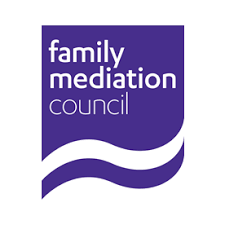Family

What is family mediation?
-
A family dispute may feel like a never-ending battle. There are endless arguments and very little common ground. You’re tired of fighting and want to find a resolution, but you don’t know where to turn. When you think about ending the feud, the idea of reconciliation seems even less enticing. It’s not unusual for disputes to arise and for tensions to grow between parents, that are married, co-habiting or in civil partnerships. This often leads to resentment and animosity, which in turn may prevent parents from ‘talking’ to each other or even being in close proximity. Parties involved in family disputes need to consider mediation first, before proceeding to formal proceedings.
Latitude Mediation has a number of family mediators who will support you: Family mediation is a highly effective and cost-efficient way for parents to work through issues together in private, instead of facing issues alone or as part of the formal/more aggressive divorce proceedings. Our mediators will help guide both participants through each step of the way, allowing them to move forward and parent any children (and pets!) responsibly.
Family mediation recognise that the parties in dispute are nearly always the best people to decide how to resolve the dispute and to move forwards. Mediation allows a less formal process in which parties are supported by an independent, trained professional in reaching decisions based on personal and often private details and of course ensure that the matter remains confidential.
Importantly, mediation also provides a safe and less daunting environment in which children involved in the dispute may be heard (if helpful, if they are old enough and wish to be involved – see Child Inclusive Mediation/CIM below).
What is a Mediation Information and Assessment Meeting (MIAM)?
-
A MIAM is a 1-hour meeting with one of our mediators, during which we will provide you with information about mediation and give you an opportunity to tell us more about your situation and ask questions of us. During the mediation, we will also advise whether we feel mediation would be suitable and appropriate next steps, or signpost you to any other relevant stakeholders who we feel may be more suitable at the current time.
On completion of your MIAM, assuming the case is appropriate to proceed, we can write to the other participant on your behalf inviting them to attend a MIAM. Once they have attended a MIAM, assuming the case is suitable to proceed, participants simply then need to start their mediation! (See below).
Importantly, unless there is a valid exemption (such as the need for an urgent court injunction/ prohibited steps order), participants wishing to make a court application for family law orders are actually obliged to attend a MIAM before proceeding to court.
Understanding family mediation
What if the other party does not attend a MIAM?
On completion of your MIAM, on your behalf, Latitude Mediation will invite the other party to the dispute to attend a MIAM. If they do not engage with the process and attend a MIAM, Latitude Mediation will issue a certificate to confirm that a MIAM has been attended or that certain exemptions apply (either a C100 or FM1).
What is a C100 or FM1 Mediation Certificate?
If mediation is not to proceed, parties will be issued with either a C100 of FM1 ‘certificate’ confirming their attendance. This then allows the individual to proceed to court to commence formal proceedings.
How long will my C100 or FM1 family mediation certificate last?
Your mediator will issue a certificate that lasts for four months, meaning that you have that period of time in which to commence any formal proceedings (if necessary). After this time you will simply need to attend a further MIAM in order that we can assess whether mediation remains suitable or if there have been any significant changes during that period.
If I start formal divorce proceedings, can I still use mediation?
Yes, and any lawyer involved will encourage you to do so in many instances. You are able to mediate at any time prior to the final order being made.

How family mediation works
-
Once the MIAMs are complete, parties should then be able to proceed promptly to mediation and joint sessions will be arranged. Parties then simply need to attend the joint sessions (usually 3-6).
In the event that the mediator does not feel that the case is suitable for mediation/or parties do not wish to proceed after the MIAM, the relevant Mediation Certificate (C100 and FM1) will be signed, giving participants 4 months in which to start formal proceedings.
What does family mediation involve?
-
Simply put, family mediation is a way for parties in dispute to engage in dialogue with each other in a safe space with the support and guidance of a professionally trained mediator.
During mediation parties come together to create solutions to their problems and develop agreements that everyone can live with. No matter where it takes place, it's important to be respectful and open, whilst also being honest and expressing yourself clearly, with our mediator supporting you throughout.
Mediation allows you all to come together in one space. You don't have to travel great distances, or even leave your home.
Can I refuse family mediation?
-
It’s important to realise that refusing family mediation does not give you access to legal resources. You won’t be able to seek a divorce, for example. With that said, there are many benefits of family mediation. It’s an effective way to connect with both parties in a conflict and gain clarity on where things stand.
If you decide to proceed with family mediation, you'll have an opportunity to work together toward a positive outcome. This means more than just silencing the fighting and more often than not, improving relationships between all involved. It's also about developing goals and expectations for the future. Ultimately, you can help your family reach mutual compromise and peace of mind.
Do I have to be in the same room as the person I am in mediation with?
-
At Latitude Mediation we adapt every mediation towards your individual needs. With face to face and online mediations available, we can help parties in joint or private (shuttle) sessions – you don’t have to spend time with the person you are in mediation with if you choose not to. Please do not worry, our mediators are here to support you!
At the current time, most mediations will be conducted using an online platform and video conferencing. Participants are able to mediate virtually from home and we will assist fully in instigating and running the process, including a practise call prior to the mediation if helpful. Face to face appointment of course remain an option if parties prefer.

The mediation agreement
-
The participants control all elements of the eventual settlement agreement; a signed, binding document capturing how the matter(s) in dispute is to be resolved by reference to various assurances, promises, actions, undertakings, and so on. Parties can then move forward in the knowledge that formal contentious legal proceedings have been avoided, and hopefully agreement reached in respect of how parties will communicate with each other going forwards.
Once the mediation process comes to an end, your mediator will issue you with A Statement of Outcome, containing a summary of your final agreements; or an MOU (a memorandum of understanding between two parties), which sets out your final agreements.
In order to make the resolution ‘legally binding’ (if required), parties may wish to apply to court to ask the judge to turn the document into a Consent Order. In the event that no agreement is reached, parties will receive a note from the mediator explaining that no agreement has been possible. This note will then evidence the parties attempt at mediation and parties will then (probably) consider instigating more formal proceedings.
What happens if parties do not reach agreement?
-
If a full settlement does not transpire from the participants’ efforts to mediate, the mediation should still be expected to help narrow, dilute or dispense with some aspects of the matter(s) in dispute. In this way mediation will mitigate/reduce the ongoing cost of any formal proceedings, which will recommence in the event that settlement efforts are not successful.
If full agreement is not reached the mediator will sign the relevant court certificate in order to provide evidence of the mediation. Parties may then wish to seek formal legal advice and/or commence court proceedings directly.
Can I stop the mediation if I need a break?
-
Mediation is deliberately intended to be less formal (and less stressful) than formal court proceedings and parties can take a break whenever they wish!
Parties may also simply wish to postpone the mediation in order to allow positions to settle a little. Parties will have an opportunity at the end of each session to agree the most convenient time for any further meetings.
What happens if things change?
It is important to remember that life events may mean that your agreements have to be reviewed at times. You are very welcome to return to mediation again in the future in order to renegotiate your arrangements, and many parties find this reassuring.

Consent orders
-
If you reach an agreement in mediation about child arrangements, it is not always necessary to apply for a Consent Order through the court, and the courts are always keen for parties to resolve matters directly depending on their personal circumstances.
However, many parties wish to obtain the final court ‘seal’ to the agreement in order to get piece of mind. To this end our mediators will draft summary papers for you during the mediation process and parties may then pass these to the courts on completion.

Child Inclusive Mediation (CIM)
-
It is not always easy for parties to understand what the view of the children may be. With Child Inclusive Mediation (CIM), participants can ensure that their child’s voice is heard. CIM enables parents to understand and to accommodate any concerns that a child may have, that they had otherwise not been aware of.
Older children may wish to be involved in the process, and what that ‘involvement’ looks like will vary in each case. This can often involve parents/carers speaking with the child, but sometimes, parties may prefer for the mediator to support them with these difficult conversations. A separate mediator can also be used during the process if helpful and we can discuss that with you during the MIAM.
Family mediation costs
-
How much does family mediation cost?
Mediation is a highly cost effective way to resolve disputes. Latitude Mediation will support you with highly skilled mediators are a very competitive price point.
With your first (compulsory) Mediation Assessment Information Meeting (MIAM) costing just £115!
Although each case varies, experience suggests that most child only cases conclude within 2 or sometimes 3 sessions. More complex financial disputes may benefit from an additional session.
-
Do I have to attend a MIAM before I attend mediation?
You must attend a MIAM before making an application to the family court (unless one of the exemptions applies eg urgent welfare or domestic violence or the threat of a child being taken from the jurisdiction).
Our MIAMs cost just £115 and can be booked directly online at a time that is convenient to you. They are most commonly carried out remotely (WhatsApp video/Zoom) and we will always have availability within the following 2-4 days!
During the MIAM your mediator will find out more about the issues inthe matter, be able to signpost you to other services or support (if necessary). Your mediator will then contact the other participant on your behalf to invite them to mediation.
-
Are you eligible for legal aid?
If you’re eligible for legal aid, please email info@latitudemediation.co.uk in order for us to support.
-
Can I claim £500 off my mediation through the mediation voucher scheme?
If your dispute includes issues relating to child arrangements, then it is very likely we can apply for the £500 voucher for you.
We will be able to provide some more details on the scheme during your MIAM. However, as Latitude Mediation is registered for the government funded Mediation Voucher Scheme, we will do all the hard work for you and simply deduct the monies from your invoice!
-
Will the voucher cover all my mediation costs?
The voucher is intended to be a contribution towards mediation sessions only and so you will need to pay for your MIAM before we can apply for the voucher for you.
Latitude Mediation has highly skilled mediators who will work through issues with participants as quickly and effectively and efficiently as is appropriate.
You will always be fully engaged in the mediation process and no fees will be incurred without prior discussion with participants.
-
Can the mediation voucher be used to pay for a MIAM?
No, the voucher can only be used for the mediation sessions. You will have to pay for your MIAM first (unless you are eligible for legal aid).
-
Can I get a voucher if I am eligible for legal aid?
Yes, if you are eligible for legal aid, you can still be eligible for a voucher.
-
Can I obtain a voucher if the other person in mediation is entitled to legal aid?
Yes: If one person is eligible for legal aid, the other person can still apply for a voucher. If the other person is eligible for legal aid but you are not then you will also be entitled to legal aid funding which will cover the cost of the MIAM and the first mediation session.
-
How will I receive the voucher?
If you are eligible, Latitude Mediation will apply for the voucher for you, and let you know when you have received it. It usually only takes a few days to a week to be confirmed.

Family mediation enquiries
We will get back to you as soon as possible.
Please try again later.
Have a question? If you have any questions about mediation, whether it is right for you, or anything else, please get in touch.
Professional accreditations
All our workplace mediators have significant mediation experience and are fully accredited and insured as such. We are fully compliant with the European Code of Practice for Mediators 2004 and Latitude Mediation Code of Practice 2020. See also Latitude Mediation Rules 2020. All our associated mediators are fully accredited members of the Civil Mediation Council (CMC) or College of Mediators.
Associations
All Rights Reserved | Latitude Meditation










